11, July 2018
Southern Cameroons Crisis: Presidential elections won’t cut it 0
For close to two years, Cameroon, a poor and corrupt Central African country has been caught up in a downward spiral as the killing in the two English-speaking regions of the country take a turn for the worse.
A strike by teachers and lawyers has turned into an armed conflict between Southern Cameroonian separatists and the Yaoundé regime that has distinguished itself through its corruption and indolence.
The mismanagement of the crisis has shocked the entire world, with many in the international community calling into question, the government’s ability to run a country that has once been the envy of its neighbors.
In the month of May, things appeared to be slowing down, but over the last week, the killing demon has reared its ugly head as the government steps up its attacks that have resulted in the killing of over a thousand civilians and some two hundred separatists.
The world is horrified by these killings and several actors are using back channels to mount enormous pressure on the country’s ailing president, Paul Biya, who is considered as the architect of Cameroon’s descent into chaos.
The chaos is still playing out in several cities in Southern Cameroons. On Monday, July 9, 2018, there was intense fighting in Buea, a city Southern Cameroonians consider as their capital. The fighting resulted in the killing of six police officers by Southern Cameroonian fighters.
Residents of the city have reported that Monday was the worst day in their city. Southern Cameroonian fighters have finally decided to come to the cities so as to engage the ill-prepared army soldiers in street battles.
This is no good news for the Yaoundé regime that has been working tooth and nail to protect the city of Buea. Threats from Southern Cameroonian fighters have finally compelled the city’s mayor, Patrick Ekema, who had vowed to protect the city, to flee to Douala, East Cameroon’s major port city.
Even the South West region’s governor, Okala Bilai, has also taken up refuge in Douala as the pressure from Southern Cameroonian fighters mounts. It should be recalled that there is a “fatwa” on the heads of Mayor Ekema and Governor Bilai who have spent a greater part of the last two years insulting Southern Cameroonians.
In Limbe, Southern Cameroon’s major port city, residents were compelled to respect ghost town operations as they heard that the fighters had finally set foot in Buea. The city of Limbe has been insulated from the chaos that has been playing out in Southern Cameroons over the last one year and this has made it a safe haven for many who are fleeing other cities in search a peaceful sanctuary for themselves and their families.
But the pseudo-peace in Limbe will surely not last for a long time. Southern Cameroonian fighters who were initially lurking in forests around the region have made up their minds to come to the cities. They are sick and tired of constant attacks from mosquitoes and poisonous reptiles who consider their presence in the jungle as an unfriendly intrusion into their private space and territory.
Residents of Limbe know that they will soon be playing spectator to some violent attacks from Southern Cameroonian fighters. It is a matter of time. Other cities are already suffering as a result of the fighting. Schools and courts have remained closed in cities where there have been serious fighting. Businesses have been dealt a severe blow and poverty is gradually taking root among the suffering population. Limbe’s image as a peaceful environment is gradually being eroded.
With an influx of people coming from other cities, it is obvious that Southern Cameroonian fighters will use the opportunity to establish a foothold in the city. Residents of the city therefore have an interest to respect ghost town orders from the Southern Cameroons Interim Government that is widely considered as the legitimate authority in region.
For Southern Cameroons’ rural areas, life has become a tough interminable challenge. Schools have been closed for two years and the kids are gradually coming to terms with the fact that theirs will be a kingdom of illiteracy. Teachers have fled the villages and the make-shift infrastructure that was passing off as schools is crumbling at break-neck speed.
Today, most young men in Southern Cameroon’s rural areas have taken up residence in the jungles that offer more peace than their villages. Most of them are willingly joining the ragtag Southern Cameroonian Liberation Army that comprises many armed groups, some of which are turning their guns against their own brothers in arms.
As the fighting rages on, the Yaoundé government remains stubborn to appeals for a peaceful resolution. The government is wont to using unorthodox means to address its problems. It is therefore challenging for it to listen to even the voice of wisdom.
Ever since the crisis erupted, the country’s president, Paul Biya, also known as the owner of the country, has refused to listen to many respectable people across the world.
The Pope has had an opportunity to talk to Mr. Biya. Leaders of Western countries have advised him to pursue dialogue as a sure means out of the impasse. The African Union has offered to mediate. But all their pleas have fallen on deaf ears.
The Francophonie, for its part, is still prepared to play a great role in efforts at restoring peace to the country, but the country’s authorities are reluctant to accept all these offers of assistance and this is causing the situation to spiral out of control.
Mr. Biya and his collaborators have clearly opted to pursue a path that is causing the country to lose its youthful population. They seem to be frozen in time and their strong faith in old ways is putting the country in the spotlight for all the wrong reasons.
Across the country, some religious authorities have also called on the government to embrace dialogue in order to spare the country the agony it is going through. But all the wise counsel does not seem to be music to the government’s ears.
Recently, it was the U.S. Ambassador who delivered his government’s bold message to the country’s ailing president. Americans have clearly indicated that it is time for Mr. Biya to exit the political arena as his presence is only fanning embers of war. They hold that Mr. Biya should be focusing on his legacy rather than on holding power.
In their view, Cameroon’s political mess cannot be cleaned up by those who have created it. It is time for the old guard to yield the floor to a new crop of politicians who will place the people’s interest at the center of their actions. Mr. Biya and his entourage belong to the past, a past that has been characterized by corruption, injustice and arrogance.
Instead of taking such wise counsel seriously, the government instead sent its surrogates to TV and radio stations where they rained insults on the U.S. ambassador who was simply delivering a friendly message. Some of the surrogates even intimidated on national TV that they would kill the U.S. ambassador.
Strangely, none of those who uttered such irresponsible statements have been arrested for threatening a foreign dignitary with diplomatic immunity in Cameroon. To the Yaoundé regime, the U.S. ambassador was interfering in its internal affairs. But the U.S. government will not be interfering in Cameroon’s affairs when it grants the impoverished Central African country weapons and financial assistance to fight Boko Haram insurgents in the country’s northern region.
Right from the beginning of the crisis, the Biya regime has not really come out with a clear plan to address the legitimate demands of Southern Cameroonians. On the contrary, it has been seeking ways and means to distract and intimidate Southern Cameroonians.
The massive arrest of innocent civilians and the kidnapping of Southern Cameroonian leaders in Nigeria are among the strategies the government has used to prove that it has the ability and capability to lay to rest a rebellion that is proving that it will stand the test of time.
This week, it has come up with a new distraction which, in its view, will help to calm down tempers. It has announced the holding of presidential election in the first week of October 2018 in the hope that Cameroonians will rush to the polls. But presidential elections will not cut it. Mr. Biya, the most hated and corrupt Cameroonian, will surely be his party’s flag-bearer despite the wise counsel given to him by Americans and this will make the whole process predictable.
But Cameroonians will not be deceived. Elections during Mr. Biya’s time have been anything but transparent and fair. The 85-year-old Biya has total mastery of the electoral process. He has appointed his cronies to the election-organizing body and, being an iron fist in a velvet glove, he will be working through his crude territorial administration minister, Atanga Nji, to intimidate Senior Divisional Officers for them to do all they can for Mr. Biya to win the election.
Indeed, the results of the election are a foregone conclusion. While the opposition is still struggling to put its house together, Mr. Biya is already rolling out his malicious plan. The opposition is divided and some of the opposition party leaders are just too hungry to the point where they just want to get to the corridors of power.
A few opposition leaders do have some political cloud and popularity, but their chances of beating the corrupt Biya are slim. The Social Democratic Front, SDF, has a presidential candidate who understands the issues and is very engaging. Joshua Osih, considered as a candidate of the future, is currently in the United States to talk with Southern Cameroonian Diaspora.
He understands the Diaspora has a lot of influence on the population. Besides, he knows it is the Diaspora’s money that is helping the pool of willing Southern Cameroonian fighters to give the Biya regime a run for its money. A native of the South West region, Joshua Osih is considered by many at home and abroad as the person who may help to keep the country united within a federal structure, after all, his party has always called for Cameroon to be federal. But will the angry Southern Cameroonians listen to him?
Southern Cameroonians want to walk away from a fake marriage that has brought them a lot of pain and suffering. To them, federalism belongs to the past. They have been arrested and killed by the Yaoundé government for calling for federalism. For now, their mind is on seceding and this will imply walking away with about 60% of the country’s wealth. Southern Cameroons is blessed with many resources, including oil, gas, diamond and timber. Its rich sub-soil has brought lots of economic benefits to the country. For almost 50 years, the Rio Del Rey estuary has been the source of more than 90% and at times 100% of all the country’s hydrocarbons, specifically oil.
Over the years, Cameroon has exported over US$5.88 billion worth of crude oil and other petroleum products per year and most of this money has never trickled down to the South-west region where the oil fields and refinery are located. The people of this region have been living in abject poverty, while the Yaoundé regime has been feasting. This is one of the many bones of contention that are threatening to tear the country apart.
Another candidate in the election is Barrister Akere Muna. A bright lawyer whose work both at home and abroad has made many people to take him seriously. He is bilingual and he understands the corrupt system that has brought death and destruction to the country. But the sins of his father are clearly working against him.
His father, Solomon Tandeng Muna, a one-time speaker of the House of Assembly and John Ngu Foncha, former vice-president, were those who spearheaded the movement for reunification of the two Cameroons. They both benefited from the system and made life easy for their children while the majority of Southern Cameroonians have been languishing in abject poverty.
Barrister Akere Muna may be a native of Southern Cameroons, but his father’s role in the disaster that has and is still visiting Southern Cameroons makes it hard for him to be that person who will deliver Southern Cameroons from its damnation.
In the South West region in particular, his name casts more doubts than hope. Reunification brought untold hardship to South West politicians such as N.N. Mbile, Chief Nyenty of Bachou Ntai, Chief Ayamba, Dr. E.M.L. Endeley and others who died in abject poverty due to the dirty politics Muna and Foncha played to the detriment of the South West region.
Muna and Foncha will never be forgiven in this part of the country, although both had openly apologized for their errors in 1993 during the All Anglophone Conference held in Buea.
Cameroon is going down the drain. This country can only be saved if there is an inclusive and sincere dialogue. Mr. Biya and his cohorts are still stuck in the past. They still hold that Cameroonians are stupid and will not remember the past. They are still getting it wrong. Cameroon is sitting on a keg of gun powder. The international community still has time to defuse this ticking time bomb before it goes off.
Presidential elections may be good, but in this context, they will not bring any meaningful change to the country. The voters’ registration process has been flawed right from the beginning. In the two English-speaking regions, there was virtually no registration. With the violence that is playing out in these two regions and the frustration in the French-speaking part of the country, it is clear that Cameroon is walking down the path of a national political disaster. The world has to stop Biya before he destroys Cameroon.
Mr. Biya should be dragged to the negotiating table. Solutions to Cameroon’s numerous problems could be found at the negotiating table. The world will forever be guilty if it allows Cameroon to implode. Mr. Biya and his collaborators have no intention of addressing the economic and political issues that are undermining the country’s development efforts. It is time to take the right decision. The world cannot continue to stand on the sidelines while Cameroonians kill each other.
By Kingsley Betek and Irene Nanyongo on assignment in Washington, D.C., United States of America
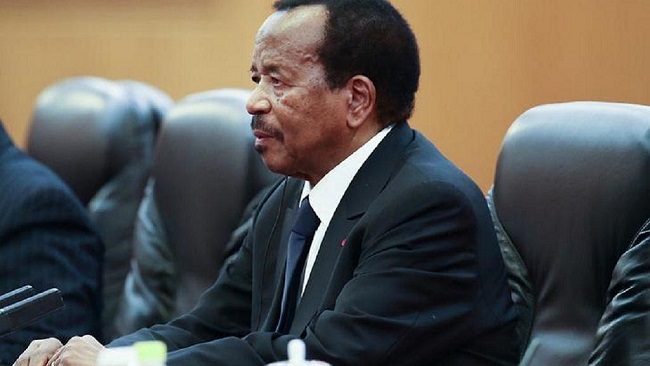


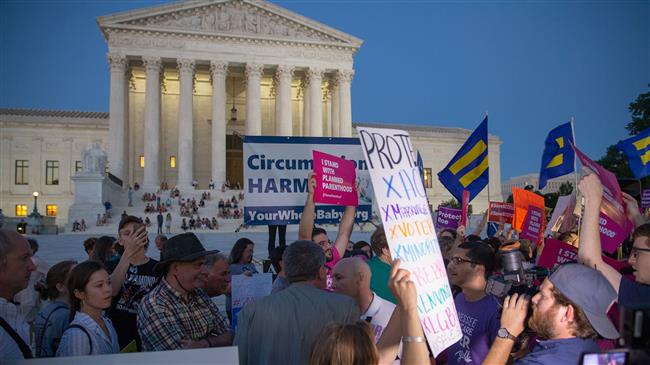


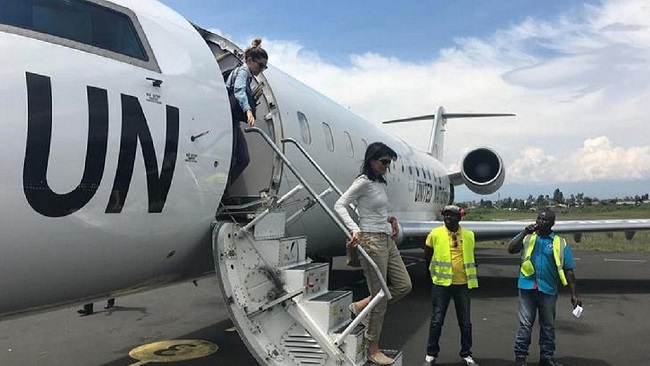
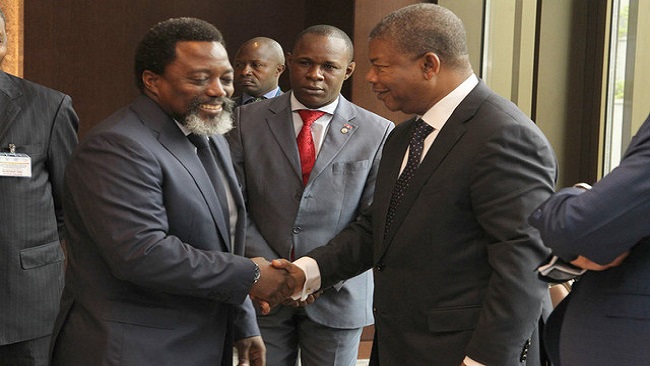
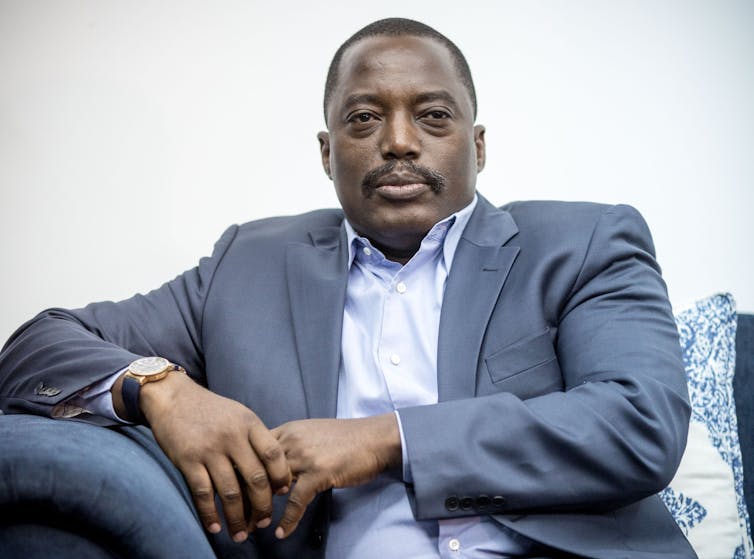
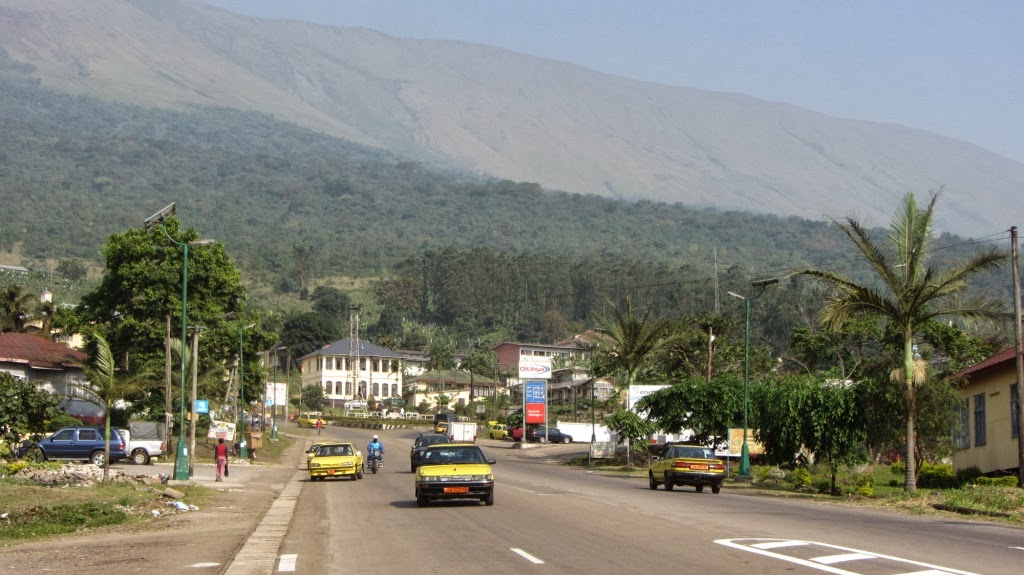
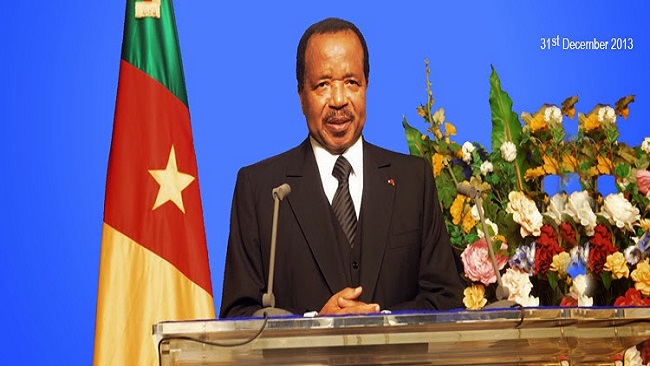












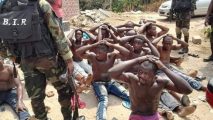





11, July 2018
Southern Cameroons Crisis: As the violence grows, Christians provide trauma healing 0
Cameroon is embroiled in what could be the precursor to a civil war. The nation is currently divided into two basic populations: the French-speaking majority and the English-speaking minority to the southwest who want to break off as their own nation — Ambazonia.
Those in the Anglophone region feel underrepresented by Cameroon’s government. Two years ago, they decided enough is enough. As English-speakers in southwest Cameroon clamor for autonomy, the French-speaking state military is clamping down.
We spoke with Efi Tembon, the Executive Director of the Cameroon Association for Bible Translation and Literacy, a partner of Wycliffe Associates. He says, “It’s actually like a genocide where the war is going on in one part of the country, in the English-speaking part of the country. The military has been deployed in that part of the country and they are causing horrible atrocities.”
(Map courtesy of Operation World)
“There are over 30,000 refugees who have fled into Nigeria and over 200,000 people have been displaced. Many of these people are hiding in the bushes — some of them elderly people, expectant mothers, mothers with young babies, and children without any care, without any food, without medicine, [and] without protection.”
State forces are going into villages in southwest Cameroon, burning homes, and shooting civilians.
The violence has become a vicious cycle.
“The people decided to fight back, so they have young people who get together and form their own groups in communities to defend their communities. So they ambush soldiers, they take weapons from soldiers and when weapons are taken or a soldier is killed, then the military goes out into the community and burns the [homes] and kills more people.”
(Photo courtesy of Efi Efi)
A paranoid military means it’s not even safe to ride a motorbike in Anglophone communities.
“Motorbikes have been burned in the area and many people have been shot because they were riding on motorbikes. Sometimes the people who attack soldiers also have motorbikes. They will attack the soldiers, ambush them, and take their weapons to fight back. So the government decided to ban motorbikes in some of the areas.”
Because of the travel dangers, including on motorbikes, CABTAL staff have a hard time getting around. But sometimes more dangerous than traveling is the danger of staying. Some translators have left their communities. Tembon says the president of a translation program had to flee the area when soldiers took over his church. Later he found out his entire village was burned.
This outbreak of violence in Cameroon has affected more than a dozen Bible translation projects.
“We have about 13 language projects in the area where this core of violence is taking place,” says Tembon. “Even some translators have died. The husband of one of our translators was shot and killed and we had to go rescue them in the forest. They were hiding in the bushes for weeks with babies and even older people. Whole families were hiding in the bushes, so we’ve taken them out into the regional training center where translation will be taking place now to help them. But even that center is not safe because it is at the heart of the crisis.”
Wycliffe Associates is hoping to raise funds to build a wall around the regional training center compound and make it safer. Also, computers and translation materials have been lost in the chaos. The ministry is trying to recover or replace those items as well. Currently, they are trying to raise $170,000.
Tembon assures, “In the midst of all of the violence, our teams are still working. God’s Word is still spreading. They are still reaching out to people.”
(Photo courtesy of Open Doors USA)
One thing CABTAL is doing to respond to the fighting is provide a trauma healing workshop for Christian leaders to be the healing hand of Christ in Cameroon.
“It’s a trauma healing workshop where we train people who can reach out to those who are suffering from the trauma. So we have launched out this workshop to train pastors and other leaders so they can help all these people scattered in the bushes to heal from this trauma of the war and the killing going on.”
Source: Mission Network News